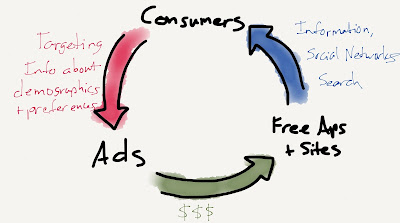The Online Privacy Fallacy
The fundamental premise of the internet is the collection and sharing of data. If this collection and sharing of data were to be stopped on its tracks, the internet as we know it would cease to exist. The privacy hysteria which has engulfed the world ever since the Cambridge Analytica scandal, necessary as it has been to some extent, fails to take into consideration these fundamentals and has lead to a situation where privacy features being rolled out by tech companies turn out to be more of an inconvenience for users and small internet businesses and privacy policies being introduced by governments further strengthen the position of incumbent tech giants.
Take for example Facebook's crackdown on API access which came after the Cambridge Analytica scandal. This has lead to researchers who are working in the fields of the effects of social media and disinformation being severely limited in their work. Another example is how privacy legislations like Europe's GDPR have made it difficult for new startups to enter and hence challenge the market position of tech giants like Facebook and Google.
The collection of data is the backbone of the advertising model which is often the main source of revenue for small content-publishing websites and blogs like this one. Unlike big brands like the New York Times who already have millions of subscribers to monetize if the plug was to be pulled on third-party user tracking which facilitates online ad targeting, for small websites and blogs without that kind of audience, if that plug was to be pulled, that would mean the end of them.
 |
| How free websites and blogs like this one make money through the advertising model (image from stratechery.com) |
Another factor to consider is the convenience of the services offered by companies that rely on the collection of user data. Think of a world without Google Search, Facebook, Twitter, Instagram, etc. Hard to fathom right? Well, that is what a blanked approach to privacy will eventually lead to.
The argument here is not that privacy is not necessary on the internet. It is rather that instead of arguing for zero collection of data, which is folly, the main focus of attention should be on ensuring that collection of data is done responsibly like ensuring that collected data is properly anonymized and aggregated. Big tech companies already claim to do this but more transparency on how they do it will go a long way in ensuring users sleep better knowing that their collected data can't be explicitly tied to them.
Instead of an absolutionist approach to privacy, it is imperative to first understand and appreciate that widespread creation, collection and sharing of data is inherent to the Internet and is what has got it so far as a medium of communication and then, after that, focusing policies on ensuring that this collection and sharing of data is done responsibly.



Comments
Post a Comment